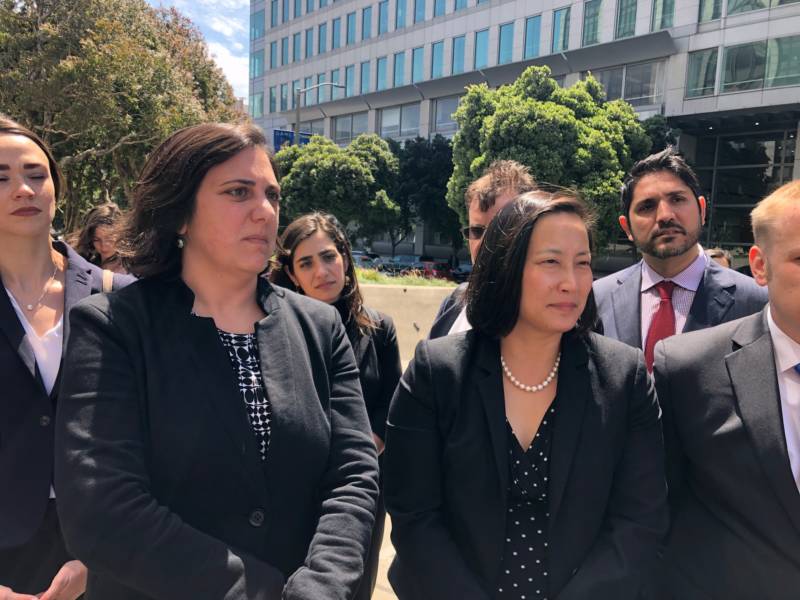A federal judge in San Francisco Thursday allowed a pair of cases to move ahead that challenge the U.S. government’s approach to issuing visa waivers under the Trump administration's travel ban on citizens of several Muslim-majority countries.
Visa applicants from countries like Syria and Iran say the U.S. government’s decisions — including many denials — are taking place in a black hole, with long delays and little transparency.
"To me, it seems like the waiver is just not really there," Fereshteh Abbasi said. "Or if it's there, it's so inefficient."
Abbasi, an Iranian national, attended the hearing Thursday to show her solidarity with the plaintiffs in the cases.
She was outside of the United States when the travel ban went into effect and endured a grueling, two-year wait before she was allowed to return to her American husband.

